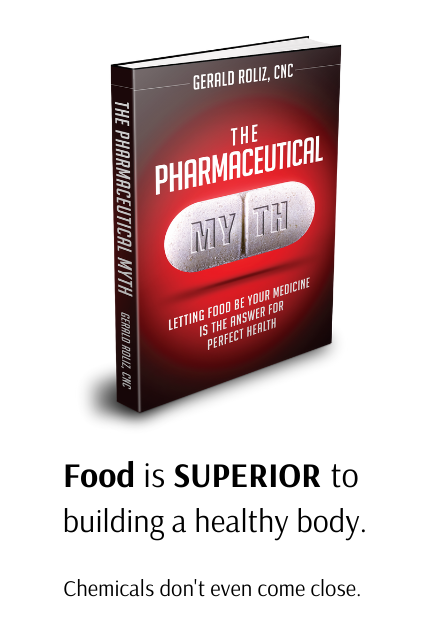Functional medicine is distinctly tailored, concentrating on treating a patient’s unique health profile. It dives deeper, considering genetics, lifestyle, and environmental factors to find disease origins, not just treat symptoms. Unlike the broad applications of traditional medicine – like Chinese, Ayurveda, or Western practices – that command mass acceptance globally. This individualized approach can often uncover unexpected connections that can lead to more effective treatments. Let’s start by defining ‘traditional medicine’.
Functional Medicine focuses on identifying and addressing the root causes of diseases, emphasizing individualized care and proactive health management. In contrast, traditional medicine often targets symptom management through pharmaceuticals or surgical interventions without always addressing underlying imbalances or lifestyle factors.

Defining Traditional Medicine
When we talk about traditional medicine, we’re referring to the medical practices and systems that have been around for generations. These are the treatments, therapies, and medicines that are widely used and understood within specific cultures.
Take Traditional Chinese Medicine (TCM), for instance; it is a whole system of medicine that has its origins thousands of years ago and has continued to evolve over time. It encompasses various forms of herbal therapy, acupuncture, massage (tuina), dietary advice, and exercise (qigong). It reflects different principles and approaches compared to Western medicine, emphasizing the body’s harmony and balance.
Western medicine employs an evidence-based approach, often utilizing prescription drugs, surgical procedures, and modern technologies in treating ailments. Everything from antibiotics to chemotherapy falls into this category. This sharp contrast showcases the vast diversity in medical traditions worldwide.
Traditional Chinese Medicine is one of the main ways people in China have looked after their health for a long time. From sipping on teas made from traditional herbs to using cupping for muscle pain relief, TCM has not only survived but also thrived.
Traditional Medicine is a well-established system consisting of procedures handed down through centuries, often encompassing practices that might seem quite unfamiliar to those accustomed to more common Western medical practices. Understanding these distinct historical medical systems can provide a broader perspective when comparing them with modern-day medicine.
With our newfound understanding of traditional medicine, let’s now dive deeper into how traditional medicine differs from functional medicine and explore how they each approach patient care differently.
Defining Functional Medicine
Functional medicine takes a different approach than traditional medicine. It views your health as a complex puzzle with many interconnected pieces. Instead of merely addressing symptoms, it aims to uncover the root causes of illness and resolve those issues.
Simply put: if you have a headache due to dehydration, taking a painkiller only treats the pain, but drinking water addresses the underlying cause. Functional medicine is all about those “aha” moments, connecting numerous clues to understand why you feel the way you do.
In many ways, it blends both the old and the new—utilizing the latest scientific research and incorporating traditions from various parts of the world. Moreover, it often involves a multidisciplinary team that includes doctors, nutritionists, counselors, and coaches!
How Functional Medicine Works
Functional medicine doesn’t focus on just one aspect of your well-being, instead it considers everything:
- Your food choices
- Your exercise habits
- Sleep patterns
- Types of stress you experience
- Family health history
- Environmental factors around you
This comprehensive approach paints an intricate picture of an individual’s health.
Let’s suppose one day you wake up feeling extremely fatigued and experiencing frequent headaches. When consulting with a functional medicine doctor, they won’t simply prescribe headache pills. Instead, they might inquire about your dietary habits, water intake, and even your childhood experiences! They’re in search of any factor that might explain your recurring condition.
The Root Cause Focus
The fundamental difference between traditional and functional medicine lies in its focus on discovering why individuals feel unwell. Rather than simply administering medication, functional medicine seeks to unravel the underlying reasons.
The most remarkable aspect? You are treated as a unique individual. It’s not about employing a universal treatment plan for everyone experiencing headaches or stomach pains; it’s about understanding what makes you who you are and how to improve your well-being.
By focusing on integrating these various factors, functional medicine paints a complete picture of someone’s overall health instead of isolating each symptom. This aids doctors in making more informed decisions and facilitates quicker recovery for individuals.
Through this holistic comparison, we’ve glimpsed how functional medicine distinguishes itself by providing personalized care tailored to individual health needs. Next, we’ll delve into how patient focus is approached within functional and traditional medicine.
Patient Focus in Functional vs. Traditional Medicine
In traditional medicine, when you visit a healthcare provider, their main goal is to help with your current health problems by treating the specific symptoms or conditions you present. You’re probably no stranger to sitting across from a doctor who’s attuned to finding a quick solution and providing relief for immediate issues without delving much deeper into what could be causing the problem. While this approach is important and effective for many ailments, it may not fully address underlying causes.
On the other hand, functional medicine brings a refreshing shift in perspective, markedly changing the dynamic between patient and healthcare provider. Rather than being solely the recipient of a prescribed treatment, patients are more actively engaged in their own healing process. In this relationship, you’re not just another case to be treated — your lifestyle, diet, stress levels, and environmental influences are carefully considered as key components of your well-being.
This leads to an important distinction: traditional medicine typically places less emphasis on comprehensive patient input, whereas functional medicine empowers the patient and practitioner to work together, fostering a sense of collaboration toward personalized care. This means that instead of just focusing on managing your symptoms as they arise, functional medicine strives to uncover the root cause of your health concerns.
For instance, if you’re experiencing digestive discomfort, traditional medicine might promptly alleviate stomach pain with medication. However, functional medicine would look more broadly at your diet and stress levels and seek to understand why you’re experiencing these symptoms in the first place. Maybe your body doesn’t agree with certain foods or you’re under chronic stress—all these factors can contribute to uncomfortable health conditions.
This is where I find functional medicine really shines – it considers you as an individual rather than just a collection of symptoms. It recognizes that each person’s body and life are unique and tailors treatments accordingly.
By recognizing these distinctions between traditional and functional medicine, we see how patient focus shifts from immediate symptom treatment to extensive patient involvement in their own care plan as they journey toward improved health and wellness.
As we’ve distinguished the contrasting principles of patient involvement in traditional versus functional medicine approaches, let’s now move into a comprehensive comparison of the holistic aspects defining these two paradigms.
Holistic Approach: Functional vs. Traditional
In traditional medicine, a visit often leads to a specialist who treats a specific part or system of your body. These methods focus on treating isolated symptoms or diseases according to disease-specific protocols.
For example, if you have a heart problem, you’ll see a cardiologist; if you have a skin condition, off you go to a dermatologist. The primary focus lies in addressing the specific ailment or symptom that prompts the visit rather than taking into account the patient’s overall well-being.
On the other hand, functional medicine takes an entirely different approach. It views the body as a complex network of interconnected systems and emphasizes an individual’s entire wellbeing instead of focusing solely on treating symptoms.
This means that when it comes to your healthcare, functional medicine doesn’t aim to just fix what’s broken. Instead, it endeavors to understand every part of your body and your lifestyle to find out why something isn’t working properly. The goal is not only managing symptoms but truly getting to the root cause of health issues.
For instance, if someone has high blood pressure, rather than simply prescribing medication to lower blood pressure in isolation, functional medicine might explore factors such as stress levels, dietary habits, exercise patterns, and potential vitamin deficiencies.
By taking this holistic viewpoint into consideration and exploring a blend of conventional treatments and alternative therapy options that complement each other effectively, functional medicine aims for comprehensive health outcomes all around. This further emphasizes the field’s focus on treating the whole person instead of isolated symptoms or ailments.
The comparison of approaches illustrates how functional medicine prioritizes understanding all aspects of an individual’s health. So, let’s delve into comparing treatment methods focused on prevention versus remedy.
Comparing Treatment Methods: Prevention vs. Remedy
Functional medicine takes on an approach that’s akin to a guardian. Instead of waiting for symptoms to emerge, it believes in identifying health risks before they escalate into major problems. It’s akin to taking an umbrella when there are just a few clouds in the sky.
This approach focuses on health promotion. Small lifestyle changes can prevent significant issues later on by encouraging diet modifications, regular exercise, and stress management before conditions worsen.
Furthermore, instead of just treating issues after they have appeared, functional medicine conducts lab tests to detect potential problems early, often before symptoms manifest. It works proactively rather than reactively.
On the other hand, traditional medicine often addresses health concerns only when they become serious enough to cause discomfort. Picture it this way, they’re more like firefighters who initially focus on dousing flames rather than understanding fire risk signs a step earlier.
Traditional medicine treats established health conditions using medical procedures or pharmaceuticals, focusing on handling specific issues and diseases once they’ve already developed. This isn’t about which method is better than the other—both sides are concerned with your well-being but in different ways. One places its emphasis on preventing issues from occurring in the first place, whereas the other intervenes to address issues once they have manifested.
Now that we’ve explored these methods separately, let’s shift our focus towards comparing their impacts in addressing various health conditions head-to-head.
Evaluating What’s Best for Your Health: Integrative or Allopathic Care
When weighing your options in healthcare, understanding what each system offers is crucial. Let’s start by looking at two different but common approaches to care: integrative care of functional medicine and allopathic care of traditional medicine. Each system has its unique way of managing health concerns, and they hold individual beliefs on healthcare standards.
Functional medicine focuses on accurate diagnoses and personalized treatments, often considering a patient’s environmental and lifestyle factors not typically addressed in allopathic settings. This comprehensive approach recognizes the influence of a patient’s genetic, environmental, and lifestyle factors on their overall well-being. By exploring an individual’s unique root cause of illness or discomfort, functional medicine seeks to address the issues at their core rather than treating symptoms alone.
On the other hand, traditional medicine often leans toward standardized treatments based on disease management, using pharmaceutical drugs and surgical intervention when necessary. This approach typically tackles symptoms directly rather than focusing on the patient’s lifestyle or environmental factors.
It’s essential to note that many individuals find great success within the traditional medical structure; however, it might not always offer the broader spectrum of treatment options found in functional medicine.
For example, a patient with chronic migraines might receive prescription medication to manage the pain within traditional medical practice. However, within functional medicine, their diet and exposure to environmental factors may also be considered in developing a treatment plan to lessen the occurrence of migraines.
This comparison can be imagined as the difference between receiving a single puzzle piece versus being handed the whole puzzle — one approach considers only elements related to immediate symptoms, while the other seeks a more holistic understanding of health shortfalls.
Regardless, it’s essential for individuals seeking effective long-term wellness strategies to delve into both systems. Understanding each system allows for informed decisions, which directly impact health outcomes.
Finding the right balance between traditional and functional medicine can lead to better healthcare outcomes. To explore personalized care aligned with functional nutrition principles visit nhicidaho.com/bookappointment or call us at 208-906-8883 for enhanced support.



